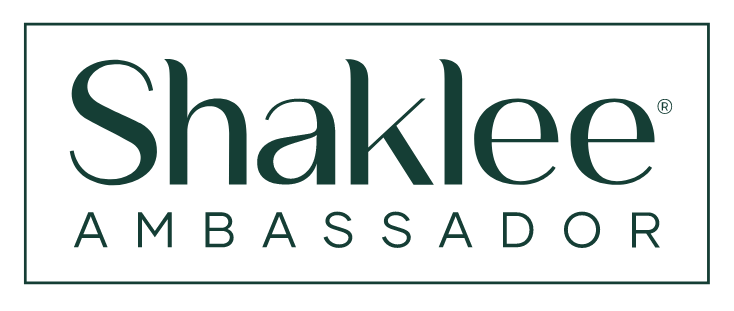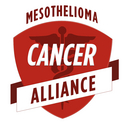There are Several Websites Strongly Debating the Health Benefits of Soy. What is Shaklee’s Opinion about these Websites?
Discussions about the safety of soy do occur on a number of websites, of which many offer links to scientific studies. Given the volume of research that has been conducted on soy and soy isoflavones, it’s not a surprise that some studies have shown negative results. However, the weakness of these “anti-soy” websites is that they focus on only a few studies rather than evaluating soy in the context of the body of literature supporting the health benefits of soy. This in turn gives consumers a skewed perception of the safety of soy and simply causes more confusion than good.
As in all areas of research, there are findings that directly conflict with the majority of data and when it comes to soy, most of the studies showing undesirable effects are in-vitro studies (laboratory studies) or have been conducted in animals, so their relevance to humans should be considered with great caution. Furthermore, many of these studies examine the effects of isolated compounds in high doses (i.e. isoflavones) which often exert very different effects then when these compounds are examined in their natural environment (in soy based foods). What’s most important is to keep in mind the abundance of research findings showing that when soy foods and isoflavones are consumed as part of an overall healthy diet, they are safe.
For 50 years, Shaklee has been a strong proponent of soy protein for its health promoting qualities. Soybeans contain all the amino acids essential to human health and soy protein products are a healthy alternative to other protein foods that are high in saturated fat and cholesterol. When viewed in the context of the body of literature on soy, the majority of scientific data strongly supports the value of soy protein as part of a healthy diet for heart health, breast and prostate health, bone health and for managing menopausal symptoms.
Is Soy Safe to Consume in Women with a History of Breast or Endometrial Cancer?
Despite the rigorous investigation of the anticancer effects of soy over the past 15 years, in particular breast and prostate cancers, concerns have been raised that the estrogen-like effects of soy isoflavones may increase the risk of developing hormone related cancers in some women. In particular, those women already at high risk or with a history of these conditions. Because isoflavones have a similar chemical structure to the hormone estrogen, they bind to estrogen receptors in tissues and exert weak estrogen-like effects under some experimental conditions. However, depending on the stage of a women’s life, isoflavones can either exert weak estrogen like effects or anti-estrogenic effects. In pre-menopausal women when endogenous estrogen levels are normal, isoflavones may actually exert anti-estrogenic effects because they take up space on estrogen receptors but exert much weaker effects than endogenous estrogen itself. In menopausal women who have significantly lower levels of endogenous estrogen, the act of soy isoflavones binding to estrogen receptors may actually have the opposite effect, exerting weak estrogenic effects.
However, unresolved issues still exist related to the action of soy isoflavones in women with a history of breast cancer, particularly estrogen receptor positive breast cancer. This type of cancer is stimulated by estrogen. While estrogen medications are contraindicated in this case, the effect of soy isoflavones is unknown. They could be protective against breast cancer reoccurrence or have a weak stimulatory effect. Long-term, randomized controlled studies with thousands of breast cancer survivors would be needed in order to better understand the risks of soy consumption in this subset of the population and unfortunately such studies have not yet been conducted.
While the preponderance of evidence to date suggests that neither consuming soy isoflavones or soy protein isolate increases the risk of breast cancer, the bottom line is that definitive data is not available. Therefore, it is Shaklee’s position that until it is available, women at high risk for breast cancer or women with a history of breast cancer should discuss the use of soy protein as part of an overall healthy diet with their personal health care provider in order to make the appropriate decision about soy consumption.
Because of the relationship between estrogen and endometrial cancer, many clinical trials examining the various health effects of soy consumption have also included effects on endometrial tissue. Unlike estrogen replacement therapy studies, these trials have found that isoflavones do not stimulate endometrial tissue proliferation. Population based studies also support this notion.
Although, the evidence to date indicates that soy either has no effect or reduces the risk of endometrial cancer, to be prudent Shaklee recommends that women concerned about the effects of soy on their personal risk for endometrial cancer, consult their health care provider.
Does Soy Negatively Impact Thyroid Function?
Speculation has arisen that soy may adversely affect thyroid function in susceptible individuals and interfere with the absorption of synthetic thyroid hormone. This particular concern stems from research beginning in the 1930s when iodine deficient rats fed raw soy beans developed goiter, an enlarged thyroid. However, when iodine was introduced into the rat’s diet, goiter was prevented. Case reports of soy formula fed infants born with hypothyroidism requiring an increased dose of thyroid hormone replacement and laboratory studies (in vitro and in vivo rat studies) showing soy isoflavones inhibit the activity of thyroid peroxidase, an enzyme normally found in the thyroid that plays an important role in thyroid hormone production, has further fueled this concern. However, evidence to date indicates that in healthy people moderate soy consumption does not negatively impacts thyroid function. In fact, in a fairly recent article published in the journal Thyroid, soy experts evaluated 14 published studies in which the effects of soy foods and isoflavones on at least one measure of thyroid function were assessed in healthy subjects. With one exception, either no effects or only very modest changes were noted. The one exception was a Japanese study which has been criticized for its study design as it failed to provide details about the nutritional composition of the soy based product used in the study and the iodine status of the study subjects. Thus, collectively the scientific findings to date provide little evidence that in healthy individuals soy foods or isoflavones adversely affect thyroid function.
The research in people with abnormal thyroid function reveals a few published case reports involving one adult and five infants with hypothyroidism. These people consumed soy and continued to suffer from hypothyroidism despite the administration of thyroid medication. In some cases the dose of thyroid medication needed to be increased. In these cases the interaction between soy foods and thyroid replacement medication appeared to be the result of malabsorption of the medication and not a systemic effect on the thyroid. The one case report in an adult involved a 45 year old woman consuming a soy supplement who had previously underwent a complete thyroidectomy. As a result she required a very high dose of thyroid replacement medication to suppress TSH levels. Interestingly separating the timing of consumption of the medication from that of the soy precluded the need for the increased dose.
Based on the majority of evidence from clinical trials conducted in healthy adult men and women soy protein and soy isoflavone consumption does not appear to adversely affect thyroid function. Although the evidence for a potential interaction of soy protein and the absorption of thyroid medication is limited to one case report, it may be prudent for adults with hypothyroidism who take thyroid medication to separate the timing of their soy supplement use from their thyroid medication to avoid any potential interference with drug absorption. Thyroid hormone is usually taken as a single dose 30 minutes to 1 hour prior to eating breakfast and is generally absorbed almost completely within an hour. Therefore properly following direction for medication use should help minimize any possible effects of soy. It is also recommended that adults with hypothyroidism have their thyroid function reassessed on a regular basis.
Does Soy Consumption Negatively Impact Male Sexual Development and Function?
Because soy isoflavones exert estrogen-like effects, concerns have been raised that consumption of soy early in life (in utero or during infancy) might cause abnormalities in sexual differentiation and feminization in males, low testosterone levels and impaired semen quality leading to infertility in adult men. These concerns stem mainly from animal studies where rats have been injected with extremely large amounts of isoflavones during development. Results of such studies have shown variable results and application of these findings to human adult males should be questioned as it is well known that the affects of isoflavone consumption on reproduction varies greatly among species. In fact, the American Academy of Pediatrics supports the use of soy infant formula as a safe and effective alternative to provide nutrition for normal growth and development in term infants, when breast feeding is not feasible and or an infant cannot tolerate cow’s milk based formulas.
Although there have been no studies in human infants evaluating the direct effects of soy on sexual development, there has been one follow up study of 120 men who consumed soy formulas during infancy. Results of this study found no effects on pubertal maturation, fertility or hormonal disorders. In a recent study, conducted at Harvard School of Public Health, researchers assessed the relationship between soy and isoflavone intake and sperm count in a group of men being treated at a fertility clinic. Results indicated those men who consumed the most soy had a drop in sperm concentration (the number of sperm per ml) however values were still considered to be within a normal range. It’s also important to note that this relationship was more pronounced in men with higher than normal sperm concentrations to begin with and in men who were overweight or obese, which accounted for 72% of the study subjects. No other differences were seen in total sperm count, sperm motility, ejaculate volume or sperm morphology. In addition, there have been a small number of other studies conducted in men examining the effects of soy consumption on plasma hormone concentrations, revealing mixed results with questionable relevancy.
Although animal studies suggest a theoretical risk of reproductive problems in men exposed to soy isoflavones during development or as adults, it’s important to remember there is great variability among species in this respect and negative impacts on sex hormones have been observed at only extremely high doses. Human studies with men have shown overall conflicting results on the impact of soy consumption on serum sex hormone levels, sperm concentration and no evidence of an effect on sperm quality or fertility has been reported. Based on the body of available evidence at this time, Shaklee believes there is little reason to think that moderate soy consumption as part of a healthy diet and lifestyle will cause reproductive abnormalities or feminization in men.
Does Soy Consumption Negatively Influence Cognitive Function?
An observational study published in 2000 raised some concerns about the possible adverse effects of soy consumption on cognitive function. In this study of Japanese men in Hawaii, those who ate tofu about 2-4 times weekly were twice as likely to develop cognitive impairment as infrequent tofu consumers. This finding was unexpected, because other research findings suggest that estrogen favorably affects cognition, at least in postmenopausal women.
Since the publication of the Hawaiian study, three clinical trials have now examined the effects of soy or isoflavones on cognitive function. One 10 week study involved young men and women who consumed either their usual diet or a high soy diet. The other two trials involved postmenopausal women who were given isoflavone supplements for 12 weeks in one study, and 24 weeks in the other. Although the duration of the studies was short, all three trials reported the intervention led to significant increases in one or more aspects of cognitive function.
In another study, a year long trial conducted in the Netherlands, cognitive function of 202 older Dutch women was measured before and one year after a daily intake of 36 g milk protein or a similar amount of isolated soy protein containing 99 mg isoflavones. In contrast to the three published trials above, this one found no effects of isoflavones on cognitive function. However, there is an important element to this study that must be considered. Women in this study were at least 60 years of age—older than those in the other three studies described above. Some evidence suggests that to reap the cognitive benefits of estrogen (and by inference possibly isoflavones), women need to begin phytoestrogen administration soon after menopause. It may be that this Dutch study shows that the timing of soy exposure likely influences the effects of soy on brain function.
At the very least, this study showed that isoflavones were not harmful, which means it can be added to the other three clinical trials as evidence that contrasts with the Hawaiian epidemiologic findings. Based on the evidence to date, soy consumption does not appear to negatively impact cognitive function however more studies are needed to confirm beneficial
effects.
Does Soy Consumption During Infancy Negatively Impact Growth and Development?
Soy infant formulas are consumed by 20-25% of formula-fed infants in the US. Some child-advocacy groups are concerned that soy-based formula in infancy, or soy intake during pregnancy, could affect infant development resulting in long term adverse effects in adults—namely accelerated puberty and reproductive problems later in life. Although Shaklee does not advocate the use of its soy based products for use as infant formula or for consumption by children under one year of age, our soy based products may be consumed by pregnant and lactation women which warrants clarification of this important soy related issue.
Many of the concerns about the effects of soy consumption on infant and child development arise from rat studies suggesting that male rats whose mothers were fed genistein didn’t achieve full sexual development as adult rats. Other observations have been made in rodent studies including growth suppression of the fetus, an anovulatory syndrome in females, and growth of breast tissue in males.
However, a more recent review on the topic of soy formulas and infant growth and development, concluded that “available data do not provide evidence of meaningful differences in timing of maturation, sexual development or fertility in adolescents or adults”. In addition, a study co-funded by the National Institute of Child Health and Human Development involving subjects who participated in growth studies as infants and who were now 21-35 years old, compared variables such as breast development, menarche, sexual orientation, fertility, menstrual characteristics and reproductive malignancies in groups who were either soy formula fed, cow formula fed or breast fed. Results revealed no significant differences between the groups, in either females or males, with regard to adult height, weight, and indices of sexual precocity, cancer, or infertility.
Despite the researching findings thus far, this subject continues to be of interest to researchers and additional studies are underway to better understand the long-term effects of soy formula feedings on infant and childhood development. Until that time, Shaklee takes the position that moderate soy consumption during childhood, adolescence or during pregnancy and lactation does not appear to have detrimental effects on maturation, sexual development or fertility in adolescents or adults. We also continue to recommend that Shaklee soy based beverages not be used as infant formula nor consumed in children under the age of one year.
Does Soy Consumption Help Lower Cholesterol?
In 2006 the American Heart Association revised its position on the role of soy protein and isoflavones on cardiovascular health. In contrast to the organization’s 2000 report that encouraged adding soy protein to a diet low in saturated fat and cholesterol, the 2006 report highlights newer research findings suggesting neither soy protein nor soy isoflavones have strong cholesterol lowering abilities.
The report analyzed studies that compared the cholesterol-lowering effects of soy protein to milk protein, wheat protein and other animal proteins. The average LDL or “bad” cholesterol-lowering benefit of soy was found to be approximately 3 percent, which was lower than previous research. It also appears that men respond better than women, and those with greatly elevated cholesterol respond better than those with mildly high levels. Despite AHA’s position, a more recent meta-analysis found soy lowered LDL by 5.3% which translates to a 10% reduction in the risk of heart disease, a clinically meaningful risk reduction.
While soy protein is not the “magic bullet” for LDL lowering, it still has a number of other cardiovascular health benefits. For example, studies suggest that soy may exert positive effects on other risk factors such as inflammatory markers, markers of oxidative stress, endothelial function and LDL particle size.
Based on the evidence to date, Shaklee takes the position that in order to substantially reduce the risk of heart disease through lifestyle modification, comprehensive changes are needed. No single food or nutrient is sufficiently potent enough to produce meaningful reductions in risk. However soy protein consumption does have modest effects on lowering LDL cholesterol as well as positive effects on LDL particle size and endothelial function which justifies a recommendation to include soy foods as part of a heart healthy diet. For cholesterol reduction, 25 grams of soy protein per day is recommended.
Is Soy Good For Bone Health?
While research to date is not conclusive, results do suggest that soy isoflavones may provide bone health benefits. Population based studies show a lower incidence of hip osteoporosis among Asian populations consuming high soy diets in comparison to Western populations. Although to date there are only a few short term studies looking at the effects of soy isoflavones on bone density in humans, results show promise. In two of three studies, women consuming soy protein isolate with approximately 90 mg of isoflavones per day experienced a 1-2% increase in spine bone mineral density. In addition to these findings it is known that relative to animal protein, soybeans have a lower content of sulfur containing amino acids which may be beneficial to bone health. The metabolism of sulfur amino acids in the body produces sulfate which increase urine acidity and therefore increases urinary calcium excretion. Preliminary results from a randomized, controlled, crossover study in postmenopausal women indicated that a soy protein diet significantly reduced urinary calcium excretion relative to a milk protein control diet. Because the only difference in the diets was the source of protein, the reduction in urinary calcium excretion in the soy protein diet was attributed to the lower sulfur amino acid content.
Lastly, soybeans are high in calcium relative to other plants and also have a high calcium fractional absorption rate. Although phytates in soy can bind calcium decreasing calcium bioavailability, research indicates that phytates appear to only substantially decrease calcium absorption in phytate-concentrated wheat bran cereal. Shaklee soy protein products provide anywhere from 350-600 mg of calcium per serving depending on the product which is equivalent to the calcium found in 1-2 cups of milk.
Based on the research to date, it’s Shaklee’s position that modest consumption of soy protein containing isoflavones, may have a positive effect on bone mineral density especially in post-menopausal women. Our current understanding of the role soy plays in bone health is in its infancy. Long-term studies are necessary to determine and clarify how soy protein and/or soy isoflavones impact bone mineral density and the prevention of osteoporosis related fractures.
Does Soy Consumption Help with the Transition to Menopause?
Hot flashes are among the most bothersome symptoms reported by peri-menopausal women and are the result of declining estrogen levels. In terms of treatment, physicians generally prescribe hormone replacement therapy (HRT) as a primary means to mitigate them. While HRT can offer short term relief of hot flashes, long term use of HRT has been found to increase the risk of heart disease and stroke. Given those risk, many women are looking for alternatives to HRT, even for short term use. Soy foods including soy protein may be a reasonable alternative.
While the frequency and severity of hot flashes vary from woman to woman, population studies have shown that Asian women generally report far fewer symptoms than women living in the US and Europe. Soy is a source of the isoflavones, genistein and diadzein, which are also known as phytoestrogens, plant estrogens that exert weak estrogenic activity in human tissues. Researchers began studying the effects of soy for alleviating menopausal symptoms in the mid nineties and in one of the first studies, women given soy flour experienced significantly less hot flashes compared to those consuming wheat flour. Since then numerous studies have been conducted evaluating the effects of soy foods or isoflavones on the frequency and/or severity of hot flashes. A meta-analysis of 13 of these trials found that frequency of hot flashes significantly decreased in women who initially reported having 5 or more hot flashes per day. The studies ranged in duration (1-24 months) and provided a dose of isoflavones in the range of 34-100 mg per day. In another review of about 25 placebo-controlled studies examining the effects of either soy foods, soy extracts or red clover extracts on symptoms in peri-menopause or post-menopausal women, results have been mixed.
While soy consumption may have variable effects on reducing the severity and frequency of hot flashes in peri-menopausal women, Shaklee supports the use of soy protein consumption as part of a healthy diet for reducing the frequency and severity of hot flashes. It is a safe alternative, likely to be beneficial and with no harmful effects.
I’ve Been Told I’m Allergic to Soy. What Products Should I Avoid?
Almost any food can induce an allergic reaction in sensitive individuals. However, the most frequent incidence of sensitivity comes from the following food categories: fruits, legumes (including soy and peanuts), eggs and milk, shellfish, tree nuts, vegetables, wheat and sesame seed. Consequences can manifest from severe reactions like anaphylaxis to facial swelling, respiratory discomfort and gastrointestinal reactions. However, it is rare for severe reactions to occur that require drastic treatment action.
Soy allergies are estimated to be less than 0.5% of the population and it is well established that infants and young children are most susceptible to food sensitivity due to an immature digest tract. However, infants and children tend to outgrow their allergies, particular allergies to milk, eggs and soy, therefore the estimated prevalence may be inflated since it includes infants and children which tend to have a transitional sensitivity.
Although researchers are still uncertain about which components in soy are allergenic, about 15 different proteins have been identified in soy that may be responsible. Although a history of an allergic reaction shortly after exposure to soy might suggest an allergy, this should be confirmed with a skin prick test or RAST by an allergist and as with most allergies, avoidance of the allergen is key. Therefore if you have been diagnosed with a soy allergy, Shaklee recommends reading Shaklee nutrition product labels to identify which products contain isolated soy protein and avoid consuming such products. Because the processing of soy beans for making soybean oil and soy lecithin removes virtually all the potential allergenic and sensitizing components, the majority of people with soy allergies should be able to consume soy bean oil and soy lecithin without a reaction.
What’s the Difference Between Fermented and Unfermented Soy?
Soy foods generally can be categorized as fermented (i.e. miso, tempeh and natto) or unfermented (i.e. soy protein, soy milk, and tofu). Shaklee soy protein based products are fall into the unfermented category. Although the process of fermentation may slightly increase the mineral absorption from soy foods and give rise to other potentially beneficial compounds there is little evidence that fermented soy foods are superior to unfermented ones. Both fermented and non fermented soy foods have been consumed in Japan and China for at least 500 to 1000 years, respectively and in both countries today, at least half of the total soy consumed comes from unfermented foods.
What is the Purine Content of the Soy Protein Used in Shaklee Products?
Purines are a product of protein metabolism and are converted to uric acid. High levels of uric acid in the body can contribute to kidney stones and gout. Therefore, people with these conditions are often instructed to follow a low purine diet. Although, purines are found in a variety of foods they are most concentrated in organ meats, gravies, anchovies, sardines and mackerel. Like other legumes, soy beans contain some purines and the purine content of the soy protein isolate used in Shaklee products is estimated to be about 1.9 mg of purines per gram of protein. If you are following a low purine diet, dietary intake of legumes is generally recommended to be limited to 1-2 servings per week.
Is Soy Protein Considered to Be a High Protein Quality?
Soybeans are higher in protein than other legumes with about 35 to 38 percent of the calories in soybeans derived from protein, compared to 20 to 30 percent in most other beans. The soy protein isolate used in Shaklee products is also considered a complete protein in that contains adequate quantities of all essential amino acids necessary for building and maintaining human tissues.
Protein quality is measured using the Protein Digestibility Corrected Amino Acid Score (PDCAAS) and is the official method used by the World Health Organization, the U.S. Food and Drug Administration and the U.S. Department of Agriculture. The PDCAAS is the amino acid score (amino acid pattern of a protein relative to amino acid needs) with a correction factor for digestibility. The PDCAAS uses human amino acid requirements to calculate the amino acid score. Proteins that meet the WHO guidelines are given a rating of 1.0 and based on this rating system, soy protein has a rating of 1.0 which is the same score given to egg while and milk protein, two of the highest quality animal protein foods.
What are the “Anti-Nutrients” in Soy?
Soybeans like other legumes and whole grains are high in phytate sometimes referred to as an “anti-nutrient”, because it binds with the minerals zinc and iron, reducing their absorption. Because soy beans are not naturally rich in zinc, strict vegetarians are encouraged to consume other plant foods rich in zinc or take zinc supplements. In contrast to zinc, soy foods can be a good source of iron and clinical studies show that incorporating soy into the diet does not negatively impact iron status.
In addition to phytates in soy, soy beans are high in oxalates. Oxalates are also commonly found in dark leafy green vegetables, nuts and berries and bind minerals, in particular calcium. However, research suggests Shaklee soy protein products like Energizing Soy Protein and Cinch Shake Mix are fortified with calcium, providing anywhere from 500 to 600 mg per serving when prepared as directed which helps offsets the potential for reduced absorption.
What About Protease Inhibitors Found in Soy? Are They Harmful?
Raw soybeans contain a family of proteins called protease inhibitors that can bind with digestive enzymes that breakdown protein, inhibiting their action. They are found in many foods such as raw potatoes and raw eggs. However, when these foods are cooked or heated, this denatures protease inhibitors, decreasing their activity. The processing of soy protein isolate also destroys protease inhibitors and to date there is no direct evidence indicating even a low level of protease inhibit intake is harmful to humans.
How is Soy Protein Isolate Processed? Is it Genetically Modified?
Some soy protein isolates are alcohol-processed which removes the beneficial isoflavones. However, the soy protein isolate used in Shaklee products is water washed to retain isoflavones. We use only non-genetically modified (non GMO) soy protein certified through an Identity Preservation Program (IPP). This program ensures that the soy we use is tightly monitored and controlled from planting and harvesting to processing.
Recommended Products:
Energizing Soy Protein Product Brief
Shaklee 180 Energizing Smoothees






















